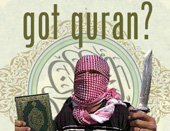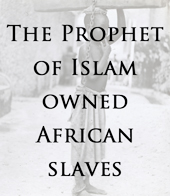TheReligionofPeace
|
|
TROP is a non-political, fact-based site which examines
the ideological threat that Islam poses to human dignity and freedom
|
|
|
Jihad Report
Jan 17, 2026 -
Jan 23, 2026
|
| Attacks |
25
|
| Killed |
107
|
| Injured |
116
|
| Suicide Blasts |
3
|
| Countries |
9
|
|

|
Jihad Report
December, 2025
|
| Attacks |
117
|
| Killed |
611
|
| Injured |
520
|
| Suicide Blasts |
6
|
| Countries |
20
|
|
List of Attacks
|
|
|
It's much easier to act as if critics of Islam have a problem with Muslims as people than
it is to accept the uncomfortable truth that Islam is different
|
|
|
|

|

|
|
|

What can we learn about
Islam from this woman?
|
|
|
|





